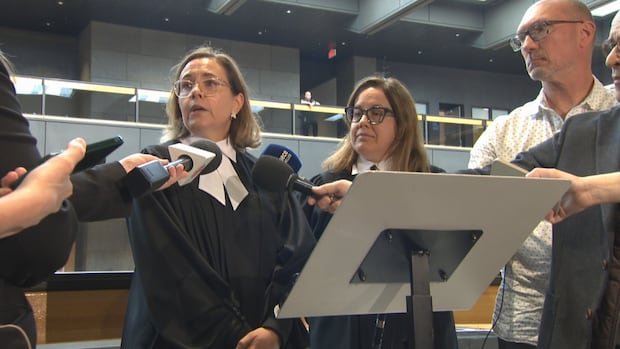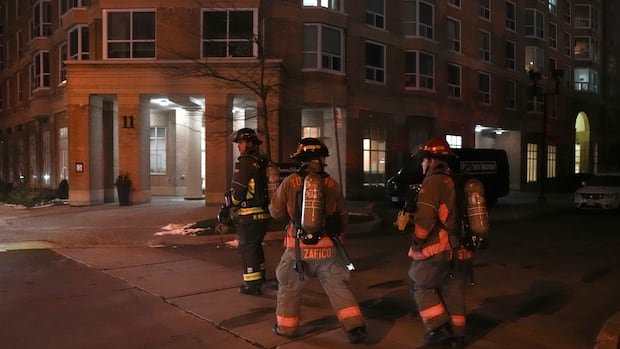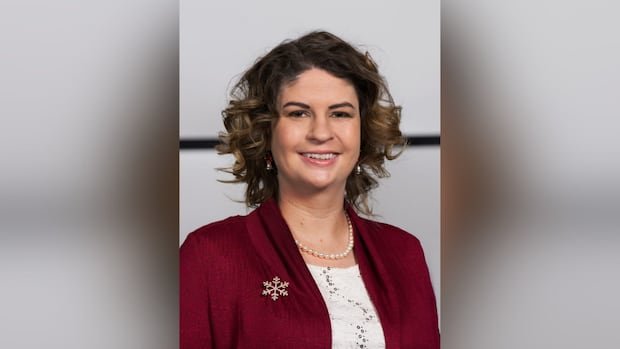For the alleged victims of billionaire Robert Miller, the feeling of betrayal began to sink on Monday when the crown and Miller’s defense team agreed that the 81 -year -old man was too sick to be judged.
The final blow came Tuesday, when the judge of the Superior Court of Quebec, Lyne Decarie, ordered a suspension of the procedures, effectively ending the criminal trial.
Miller no longer faces the 24 charges against him related to sexual crimes that cover more than two decades against 11 women, most of whom were less age at the time of alleged events.
“The decision to protect it from justice is not just an injustice for each of us, it is an insult to our suffering and a betrayal by a system that is supposed to protect us,” said one of the women who participated in the police investigation to Radio-Canadá on Monday.
Another woman who accused Miller on Radio-Canada Enquema The investigation, which brought to light the accusations in 2023, told him that he is concerned that the process was not for anything.
“It was more than brave, not far from being crazy, in reality, saying: ‘Listen, we are going to listen. We are going to talk and be believed, without feeling threatened,” he said. “The last two years have been really difficult.”
Miller was not acquitted and the charges against him were not removed. He has denied all the accusations against him.
In different circumstances, the crown could present the charges again or appeal the suspension of the procedures, but that will not happen in this case, with the lawyer of the Crown Delphine Mauger saying that Miller “will not improve” and will call a trial “simply impossible.”
Miller, who has Parkinson’s disease on the late stage, is prostrated in bed, incontinent and needs medications and oxygen periodically, he could not have fully participated in the trial, much less attend the court daily, the chief prosecutor Dominique Potvin had explained.
When asked why Miller could not participate by videoconferencing, Mauger said they explored all possible ways and reached the same conclusion, adding that a defendant has the right to be present in his judgment significantly.
No conviction does not mean that there is no crime, says the counselor
The decision to Decarie in the case of Miller was “cold and rational” and was the best for court based on his ability to administer justice, said UQAM’s political science and law professor Rachel Chagnon.
“The possibility that the victim sees that man being punished, going to jail and going through a sentence was almost [non-existent]”She said.
“It was simply not possible to expect true justice in the full sense of the word.”
But the way in which the judicial system works in cases like this is completely disagree with what the victims need, Chagnon added.
Robert Miller, 81, faced 24 positions related to sexual crimes involving 11 women, most of whom were minors at the time of alleged crimes.
The psychosocial counselor Sarah Amina Unday-Cenga, who works with victims of sexual assault at West Island Calacs, says that part of the process of support for victims through the judicial system is preparing them for disappointment. But, regardless of how prepared they can be, it is always difficult when a conviction does not materialize.
“Many people tend to think that because someone was not convicted, that means that it did not happen and that the victims were only lying, which is not absolutely the case,” he said. “I have seen many judges talk about the fact that ‘I think the victim is just that I don’t have enough to condemn the abuser’.”
Chagnon said that while Miller’s result could deter others from accusing his abusers, he gave the plaintiffs the opportunity to receive moral and social support that they would not have had otherwise.
More ways are needed to heal
Nday-Ejaga says that there must be more alternative ways for victims to obtain justice in these cases, and financial compensation is one of those roads. In particular, in the case of Robert Miller, there are still two ongoing civil demands, including a class action that involves almost five times the number of victims in the criminal trial.
Others, who might need to hear some kind of explanation of the abuse they experienced, could begin to find closure through restorative justice, a process that emphasizes responsibility and healing on punishment.
“The healing process is very unique for each individual, but to be able to have different processes, more of them, around Montreal and around Quebec in general could be useful.”
In its annual review published earlier this week, the Montreal Police said that the number of reported sexual assaults had increased by 12.6 percent compared to the average of five years, which demonstrates, in part, a growing confidence between the victims and the judicial system, according to them.
Nay-Cenga said that could be true, he says that most of the time, the people with whom he works choose not to inform his abuser. She said that much of the guilt and shame that the victims feel when they speak is due to the lack of opening of society, and although progress has been made, there is still a lot of work to be done.
Chagnon agrees. She points to Miller, who was first accused in 2024, 15 years after the Montreal Police began investigating him.
The first police investigation on him opened in 2009 and closed a year later.
“We have to admit that mistakes were made, that there were perhaps people who were not taken as seriously as they should have been,” he said.
“We owe them to be at least honest in that aspect and admit that we were not always at our best in the past.”









